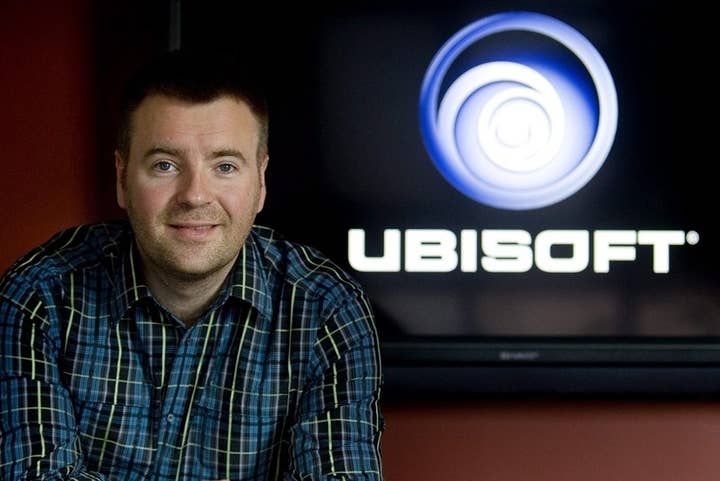"No room for B-games," says Ubisoft Montreal head
Yannis Mallat on next-gen trends, rising development costs, and managing a team of more than 2,700 people
If you're expecting the next generation of consoles to change everything, you may be a bit disappointed. Speaking with GamesIndustry International at the Game Developers Conference last month, Ubisoft Montreal CEO Yannis Mallat said he expects a continuation of market trends that have emerged in recent years.
"On one end of the spectrum you will have all the big, AAA blockbuster games that [offer] more and more production values, more value for the players, but there will be fewer of them taking a bigger chunk of the market," Mallat said.
On the other end of the spectrum, the developer said mobile initiatives, tablets, and Facebook will continue to bring in new customers to the gaming industry. The problem is with what falls in the middle of the spectrum.
"The in-between, the belly of the market, is the one that just collapsed in a way and disappeared," Mallat said. "Meaning there is no room for B-games, if I should say so, which proves the point of quality. I think that companies that put quality and consumer value as a primary focus, as we've been doing at Ubisoft, will enjoy great success."
"You gather as much talent as possible, and you give them three things: Trust, means, and insane challenges. Usually they come back with pretty good stuff."
Yannis Mallat
That's not to say the new consoles will have no impact; Mallat said the arrival of a new generation of consoles will bring with it new perspectives and innovations, giving the recently struggling packaged goods market some much-needed traction. It also means rising development costs, but Mallat said he's actually found those "very manageable" of late.
"It's a question of bringing quality content to the gamers and enjoying great success thanks to that," Mallat explained. "So it's OK to invest more when you get more in return."
He noted Ubisoft's strong performance last year, saying the company is investing a lot in new technology, but still managing costs the right way. He added that the way the publisher uses larger development teams and cross-studio collaboration has also resulted in productivity jumps.
As the head of both Ubisoft Montreal and Ubisoft Toronto, Mallat understands a bit about the logistics of managing those larger teams. The Montreal studio has roughly 2,400 developers, with another 300 or so in Toronto. When asked how he manages that many people, Mallat chalked it up to lean management and a bottom-up approach that empowers the creative talent.
"That's my recipe for AAA games," Mallat said. "You gather as much talent as possible, and you give them three things: Trust, means, and insane challenges. Usually they come back with pretty good stuff."
As for how big the studio can conceivably get before the current structure starts to break down, Mallat brushed the questions aside, saying, "I was asking myself the same question years ago when we were 1,400. Then I stopped asking myself that question, and we're still here and we're fine. I think it's working."









